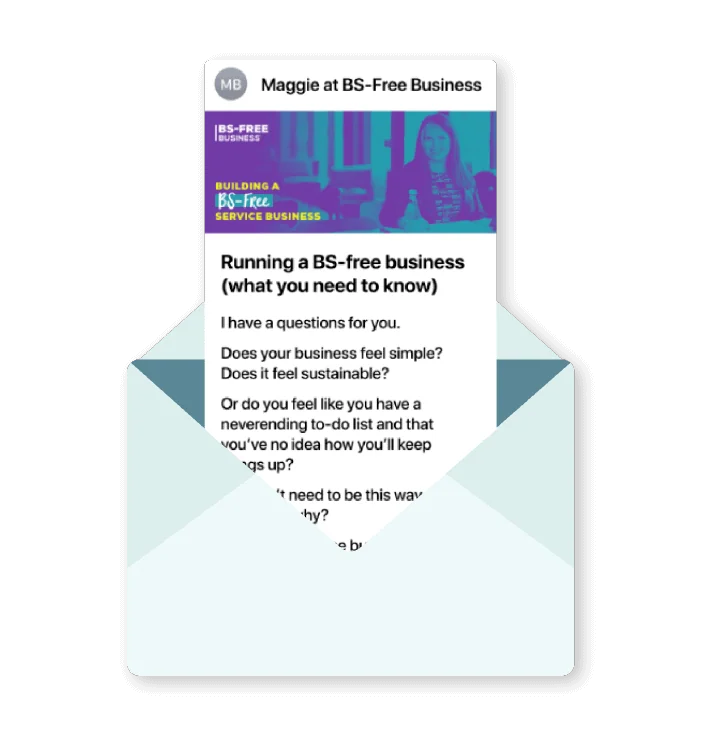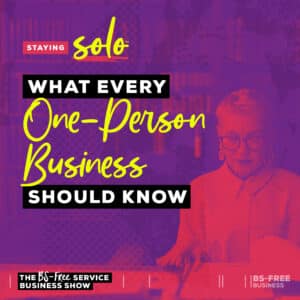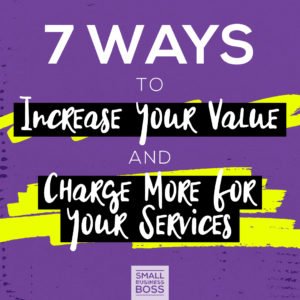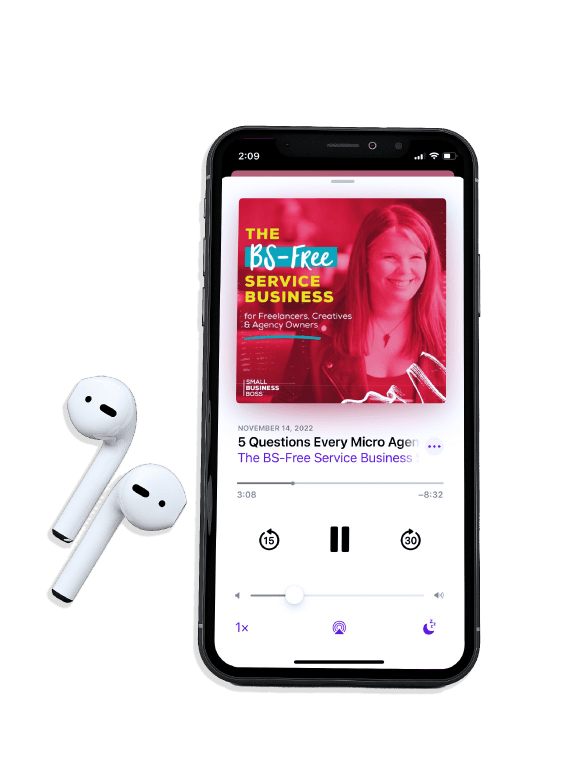
Search the site:
Episode 151: How to Attract More Clients with Content Marketing
Fact: I run a content marketing agency, so you knew it only had to be a matter of time before I talked about using content to attract more clients. In this episode, we’re talking about using content marketing strategically as a service business owner.
Today, it’s all about content marketing here on the podcast! So before we dive in, I want to call out a few specific things about this topic.
Starting with the fact that content marketing isn’t a magical cure-all for your business. If you’re struggling to find clients or to sell your services, you need to get those foundations handled before you spend all day blogging or posting on IG stories.
Otherwise, you’re going to spend oodles of time, but find yourself in the same situation you’re in right now. Get your foundations handled before you invest a lot of time in content marketing for your services.
And if you’re not sure why, it’s as simple as the fact that to “sell” yourself using content marketing it’s a much longer, less direct way of doing so with services. So you need to ensure that your offering, pricing and everything else is rock solid before you get out there.
That said, there is a time and place for content marketing in your business, and it should be no surprise that I’m such a super fan of it. I mean, really, this is a podcast, which is part of our content marketing strategy.
With that out of the way, let’s talk about some fundamentals.
Be Specific and Strategic
Content marketing success comes down to two core things. First, you need to be specific — specific in who you’re talking to.
For example, my audience used to be “online business owners.” That was too broad of a category. Then it was “service business owners.” And now, it’s even more specific with a focus on freelancers, coaches, and consultants. Within that audience, there are some specific qualities that make people want to be part of Small Business Boss.
As the saying goes, if you’re talking to everyone, you’re talking to no one. Without a very specific idea of WHO you’re serving with your content, it’s hard to attract the right people — and it’s even harder to position yourself as a solution to their problem.
Speaking of problems, your content marketing needs to be strategic. As a business owner, the strategy should be that the content you create fills a real need for your audience, and it helps them solve a problem.
For example, I get asked a lot by service business owners if they should blog for their business to attract clients. My answer is never clear-cut, as it depends on a number of factors, including who their audience is, if they read blogs, if it’s a good use of time and so much more. That question is a signal that there something I need to address, and here we are with this podcast episode discussing this very topic.
If your inclination is to create content that you “think” your audience wants to read and not what you “know” they want to read, you need to consider if you’re really being strategic.
There’s no point in blogging if there’s not a clear line between the content you create and how you can help people address the challenges they’re facing.
Pick Your Platforms
When it comes to your content marketing, there are SO many options, and it can be really hard not to be overwhelmed. I mean, creating content can easily be a full-time job. (Which is good for me as my agency’s services are always needed!)
This, bosses, is why you need to pick the right platform to focus on. Do one or two platforms and do them well. Master them before you try to keep adding more and more and more of them.
If you’re not sure WHERE you should be with your content marketing, consider where your ideal customers are. That should be the #1 consideration for figuring out where to focus your energy. Are they podcast listeners? Do they hang out all day on Instagram? Are they active users of Facebook groups? Knowing that is the KEY to success with content marketing.
Next up, consider where your skills and interests lie. If you despise writing, you probably don’t want to start a blog that you’re going to have to write week in, week out. Or if you’re not a fan of Twitter, that’s not the place for you to double down.
Ideally, you’ll find a sweet spot between where your audience is and what you’re most interested in focusing on. If there’s a complete mismatch, it may be worth considering getting help or switching to a tactic other than content marketing.
Consider the Customer Journey
Many times when we start creating content, we’re so excited that we don’t realize that for readers or listeners or followers to turn into customers, we need to have a clear plan for how that happens.
Why? Well, let’s be honest. How many times do you read a blog or listen to a podcast or watch a video and then immediately stop what you’re doing and hire that person?
Pretty much never, right?
As humans, we need to be walked through a series of steps to get us from the point where we’re finding the content to actually plunking down our money.
The simplest way to do this is to ensure that you have an email marketing strategy working in conjunction with your content. That way, they can consume content, then sign-up for something by email, and you can build a relationship that way. It may take months or years, but if you really want to attract clients using your content, you need to be ready for a long-term play.
Determine ROI
Finally, if you’re going to invest time (or money) into your content marketing as a way to attract clients, you need to be able to measure how well it’s working.
For example, if a client has an average lifetime value of $5000 for you, how many clients do you need to call in using your content in a year to get a solid ROI? I will be honest, for many business owners, there’s a gap between when they invest in content and when it starts to pay off in the form of clients. If you’re not willing to be patient and you need to get new clients quickly, content marketing is likely not the way to go.
The other piece of the puzzle is accepting what may and may not work for your type of business. For example, with our content for Scoop Studios, there are so many things we could do, but the reality is that our audience doesn’t invest a lot of time in reading blog posts, so we limit our blogging to twice a month. The primary purpose of that content is to establish authority and use it as a way to stay top of mind on LinkedIn with potential clients.
As much as we’d love to build a robust content marketing strategy for the agency, based on what we know about our typical client, it’s not a good use of time or resources. That may change, but success with content marketing is about focusing on what delivers results — not creating more and more content without a plan.
Need help with your content marketing and blog? Grab a copy of the super popular Blog Planner Toolkit by signing up for the Small Business Boss Vault. The vault gives you this amazing tool plus other resources for running your service business.

I’m Maggie Patterson (she/her), and services businesses are my business.
I have 20+ years of experience with client services, am a consultant for agency owners, creatives, and consultants, and vocal advocate for humane business practices rooted in empathy, respect, and trust.
Help Not Hype

Tired of the same old BS business advice?
I got you with weekly emails packed full of proven strategy that makes a real difference in your service business.









